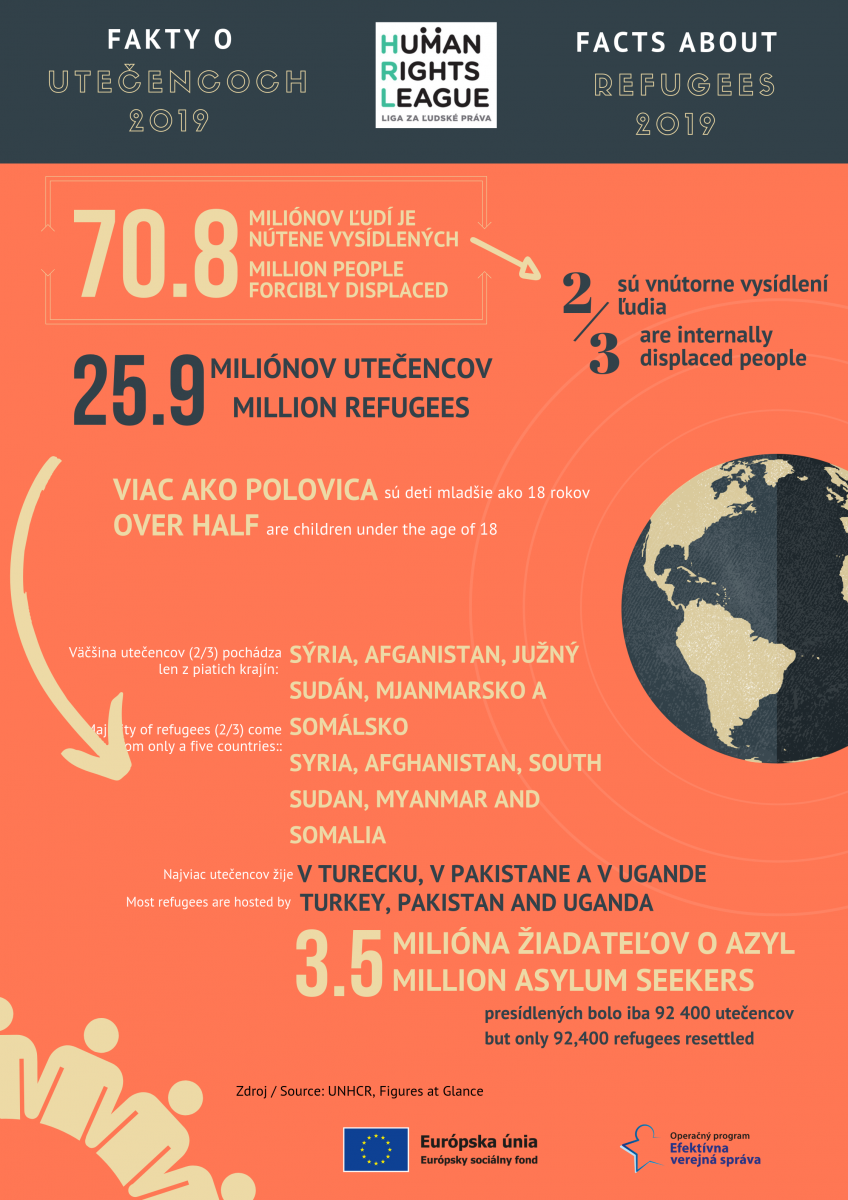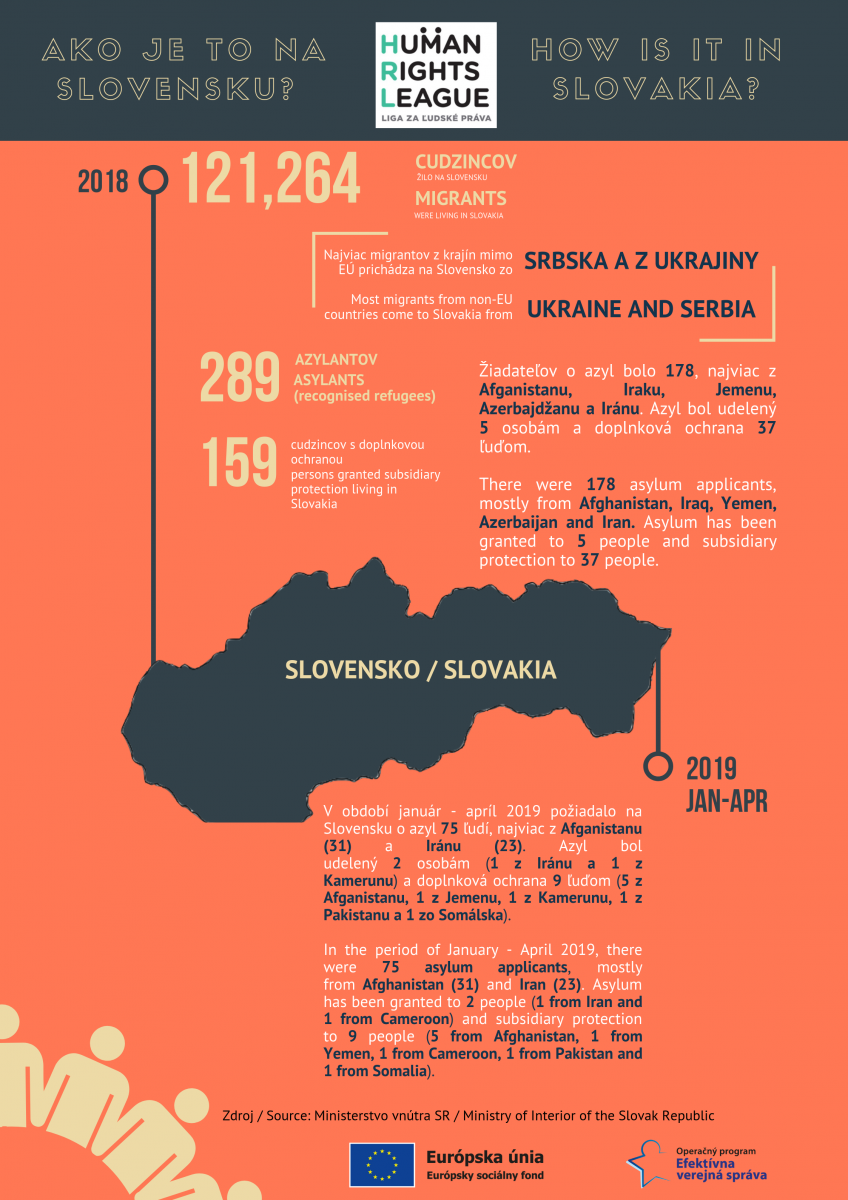In 2018, over 70 million people were displaced worldwide, the highest number recorded since the UNHCR was established 70 years ago. Of those displaced, 25.9 million are refugees, 41.3 million people are internally displaced within their country borders and 3.5 million are asylum seekers. Strikingly, children made up more than half of the refugee population (13 million). The countries which faced a rapid increase of displaced persons just in the course of one year were Venezuela, where there are up to 4 million displaced citizens who fled their country, and Ethiopia, with 1,6 million displaced people, 98% of them within their own country. These numbers show the desperate need for protection of refugees from war, conflict and persecution.
UNHCR reports that in 2018 alone, more than 13 million people were displaced from only five countries: Syria, Afghanistan, South Sudan, Myanmar and Somalia. With the lack of food, medicine and work in these countries, the number of displacements far outweighs the rate for resettlement solutions provided by the international community. Continued regional and international conflict has further led to a chaotic situation with the inability to make peace. On one hand, we face the problem of an overwhelming number of asylum applications and millions of people who are displaced, and on the other, there lacks an equal share of responsibility among hosting countries to accommodate refugees from neighbouring origins to solve the asylum problem.
According to the UNHCR, in 2018, there were around 81,337 resettlement submissions but merely 55,680 resettlement departures, with the United States of America displaying the highest number of departures (17,112 people). The major hosting countries for refugees are instead mostly developing countries, including Pakistan (1.4 million), Uganda (1.2 million), Sudan (1.1 million) and Germany (1.1 million).

Looking at the Slovak Republic, the Ministry of Interior reports that in January - April 2019, there were 75 asylum seekers, Afghanistan (31 people) and Iran (23 people) being the major countries of origin. However, only 2 people (1 Iran, 1 Cameroon) were granted asylum and 9 people were granted subsidiary protection (5 Afghanistan, 1 Yemen, Cameroon, Pakistan and Somalia). By the end of 2018, there were 289 people granted with asylum residing in Slovakia with permanent residence, whilst 159 holders of subsidiary protection were granted with temporary residence living in Slovakia according to the Statistical Overview of Legal and Illegal Migration in 2018.

It is crucial to start increasing resettlement slots for the rising number of refugees worldwide. In comparison to countries such as Turkey, which has been the country hosting the most refugees worldwide (3.7 million) for the 4th consecutive year, or Lebanon, which continues to host the largest number of refugees relative to its population (one in six citizens are refugees), many EU Member States, including Slovakia, should strive to increase their capacities to provide refuge and safety to refugees.
Source: UNHCR, Figures at Glance; Ministry of Interior of the Slovak Republic, Asylum, Statistics
The production of the infographics was supported within the project Migration Compass funded from the Operational Programme Effective Public Administration of the European Social Fund.

New numbers about refugees and displaced people worldwide are published
Today, UNHCR has published new statistics on the number of people displaced worldwide in 2018. In this article, we summarize the main facts and numbers also in comparison to the situation in Slovakia and we have created infographics with the basic numbers, which you can share with your friends.
